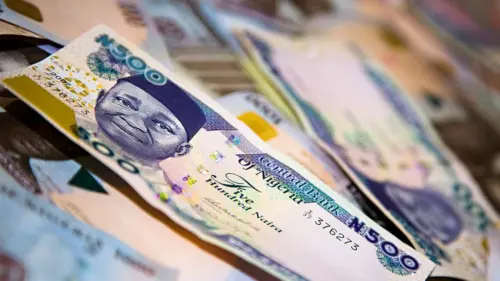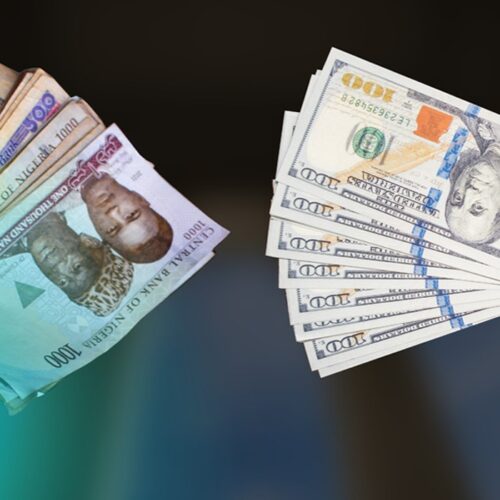Over the last decade, Nigeria’s economy has suffered a $310 billion loss in GDP, due to persistent naira devaluation, low productivity, and stagflation (a combination of high inflation, stagnant growth) and elevated unemployment. In 2014, Nigeria was tagged Africa’s largest economy after a GDP rebasing, now she has slipped to fourth place, trailing South Africa, Egypt, and Algeria.
According to the International Monetary Fund, the decline in the economy can be seen here where the GDP was $510 billion in 2014 but has now dropped to $199.7 billion as at last year (2024).

The naira’s significant depreciation, declining productivity, and inconsistent policies have contributed to this sharp decline. The Lagos-based CFG Advisory highlighted these issues in its report, From Reform Fatigue Quagmire to Sustainable Growth.
Adeola Adenikinju, President of the Nigerian Economic Society, emphasized that exchange rate depreciation has reduced the dollar value of Nigeria’s GDP, even though the GDP in naira terms has shown slow growth. Adenikinju urged the country to diversify its economy and enhance productivity to reclaim its position as Africa’s largest economy.
Muda Yusuf, CEO of the Centre for the Promotion of Private Enterprise, identified exchange rate depreciation as the primary cause of the GDP contraction in dollar terms. Yusuf noted that while GDP rebasing could boost reported figures by incorporating emerging sectors, Nigeria must address underlying issues like low productivity, weak infrastructure, and poor regulatory conditions to regain its top spot in Africa.
In 2014, the naira traded between ₦168/$ and ₦199/$, but by 2024, it had depreciated to ₦1,549.65/$, a 16-fold decline. This depreciation has been one of the most significant contributors to the reduction in Nigeria’s GDP when measured in dollar terms.
The World Bank reported that, as of August 2024, the naira was one of the region’s worst-performing currencies, with a year-to-date depreciation of 43%. However, there is hope for recovery in 2025 with the anticipated start of domestic refining and improved dollar availability from bonds issued in 2024.

For Nigeria to regain its position as Africa’s largest economy, experts emphasize the need for structural reforms and strategic investments. Turning the focus to these policies; improving productivity, boosting investments, and increasing exports will all help the economy. Proper debt management will also help the economy as it reduces the government’s debt burden and restores its credit rating to investment grade. Engaging in infrastructure development as well as attaining stability in the foreign exchange helps the economy. By increasing the foreign exchange reserves and reducing dependence on fuel imports, the naira will attain more strength.
CFG Advisory suggests restructuring Nigeria’s balance sheet, including selling joint venture oil assets to raise $30–50 billion. These funds could be used to reduce national debt, strengthen the naira, improve credit ratings and boost foreign exchange reserves.
Uche Uwaleke, director at the Institute of Capital Market Studies, anticipates that increased domestic refining capacity will significantly reduce fuel imports, easing the pressure on foreign exchange demand and Razia Khan, Chief Economist at Standard Chartered Bank, highlights the potential impact of $2.21 billion in external borrowing, which could stabilize foreign exchange reserves and bolster confidence in Nigeria’s financial stability.


